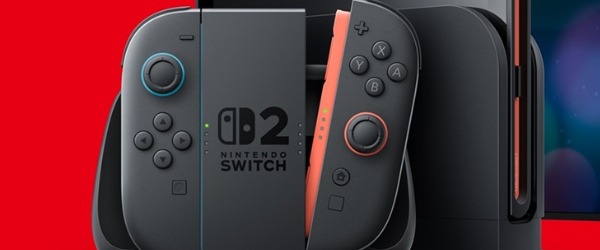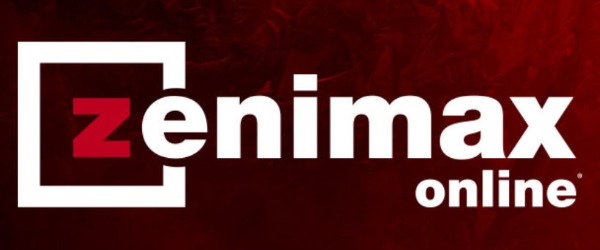
Analyst: Microsoft Can Expect 'Increasing Regulatory Scrutiny' Over Activision Blizzard Acquisition - News
by William D'Angelo , posted on 01 February 2022 / 3,998 ViewsMicrosoft announced last month it is acquiring Activision Blizzard in a deal worth $68.7 billion. This is by far the biggest acquisition in video game history.
GlobalData's Principal Analyst for the Thematic Research David Bicknell via GamingBolt has stated that there is greater scrutiny now with tech acquisitions and getting the deal finalized is expected to "dominate the narrative."
"Tech acquisitions are now under increasing regulatory scrutiny, so getting the biggest deal in tech history past the regulators will increasingly dominate the narrative around Microsoft," said Bicknell.
He added, "Although the Nuance deal has been cleared in the EU and US, it has yet to be cleared by the UK’s Competition and Markets Authority, and a decision on a further investigation may not come until March 2022.

"Microsoft can expect even greater regulatory scrutiny for its massive Activision-Blizzard deal and constant chatter about the possible outcome. It will be expected to provide a running commentary on the deal’s progress, just as Nvidia has over its protracted pursuit of Arm."
The deal isn't expect to close until Microsoft's fiscal year 2023. Microsoft has pointed out the acquisition will only make them the third largest gaming company in-terms of revenue after Sony and Tencent.
A life-long and avid gamer, William D'Angelo was first introduced to VGChartz in 2007. After years of supporting the site, he was brought on in 2010 as a junior analyst, working his way up to lead analyst in 2012. He has expanded his involvement in the gaming community by producing content on his own YouTube channel and Twitch channel dedicated to gaming Let's Plays and tutorials. You can contact the author at wdangelo@vgchartz.com or on Twitter @TrunksWD.
More Articles
Why are there idiots that keep bringing up the Nvidia and ARM deal? These are not comparable. There are a handful of chip makers, so Nvidia + ARM would have a lot of market share, and these chips are a necessity for millions of people and multiple industries. Video games are not a necessity, no one needs to play games so it won't be seen as the same thing. Even with Xbox + Activision + Bethesda Microsoft still would be nowhere close to a monopoly since there are so many video game publishers/developers, and is estimated to only have 15% of the whole video game market revenue.
Activision is such a small fish in the vast gaming landscape, regardless of how big it is, that regulation won't touch this. Add the fact that it is only one IP in a much larger landscape than that which seems to be causing people to speculate regulation in the first place, and the idea that anyone wpuld bother blocking this becomes even more nonsensical.
I wouldn't say Microsoft is that small with this acquisition they are much bigger than Sony Playstation and Nintendo. Also that one IP sells usually over 15 to 20 million units a year.
Sure their size is small compared to Google and Apple, because they get a cut of all games sold on the mobile space which is much bigger. But I wouldn't say Microsoft with Bethesda and Activision's that small.
In terms of revenue, XBox will still be behind Sony once the deal closes. In terms of what games could potentially be removed from PS with the Activision acquisition, it is even less than Bethesda. CoD is the only IP that is in question from people who want to see it fail, and that has nothing to do with a potential "monopoly" that regulation would need step in on. One or two IPs in the vast landscape of other 3rd party development across the board is not as much as many people seem to think.
No matter how you try to spin it, Activision is only a small stake in entire gaming landscape and it merging with MS still has XBox behind Sony in revenue. Those hoping for regulation to do anything are setting themselves up for disappointment.
With this amount of money involved, any deal will get an insane amount of regulatory scrutiny. I immediately think of all the flack Disney was getting by politicians and regulators when they agreed to buy Fox.
I definitely don't think there should be any regulatory issue here, but I think there's a good chance that there will be. Beating up on Big tech is a popular political issue right now. This is going to be a very tight election year in the US, and I think there's a good chance that Democrats jump on the "break up big tech" bandwagon to gain favor with voters.
Xbox will bring in 10.7% of all revenue from gaming after this deal goes through. Anyone is kidding themselves if they think this deal won't go through.
Everybody look for Xbox Series chipsets in your booster shots.
As they should. This buyout is pretty ridiculous to say the least.
Incidentally, I was thinking about this earlier today..... With the change in Phil Spencer's title to CEO of Microsoft gaming, things are set up such that Microsoft could spin off their gaming unit, which would include Activision Blizzard, If regulators balk at Microsoft bulking up even further with this acquisition.
Note that spinning off the company does not mean they can't continue to own a big chunk of it. I have no idea if this is Microsoft's thinking or not, but I don't think it's outside the realm of possibility that they have this option there as a backup plan. Considering the way that they're trying to position the gaming business, I think they have to be able to bulk up with more developers. So, if regulators aren't going to let them do it, maybe they think the next best thing is to spin the gaming arm off so that it can continue to grow.
You don`t say.
As is appropriate.
Yup, it's click bait with a side serving of copium for a vocal minority.
Pretty much. When a company's main asset is IP, then regulators rarely do anything to stop it. Because, in theory, IP is not a finite resource. Any other reasonably funded company can create the next Call of Duty. A company just being really really big doesn't generally violate antitrust laws.
Generally agree with you, although I wouldn't rule out Democrats going for brownie points among its base to appear like they're actually doing something.
You're not sure you buy this... But your counter-example involves concessions to regulator... I think you glanced at a few words and decided you understood the topic of the article or the claims of it's source. Nowhere is it claimed the deal will be blocked, or even that any specific level of "concessions" will be enforced. Only that that there will be regulatory attention. That doesn't imply any particular outcome, only that competition regulators find it serious enough of an acquisition to do at least preliminary investigation.
You also spend alot of oxygen on the idea of monopoly, which again was nowhere mentioned by article or source. The idea formal monopoly is necessary or central focus of competition regulation is just not sustained in the modern day, although the concept seems to be how US mass audience tends to envision this area of regulation. In EU, how US megaplatforms extend themselves in adjacent areas in ways that avoid competition is major concern. Those strategies are often founded exactly on avoiding the appearance of direct monopoly in single narrowly defined market, but the net effect of avoiding competition is certainly of concern to regulator whose desire for competition is really the exact opposite of almost every major corporation's strategic goals to avoid it.






















 Essay Pro
Essay Pro